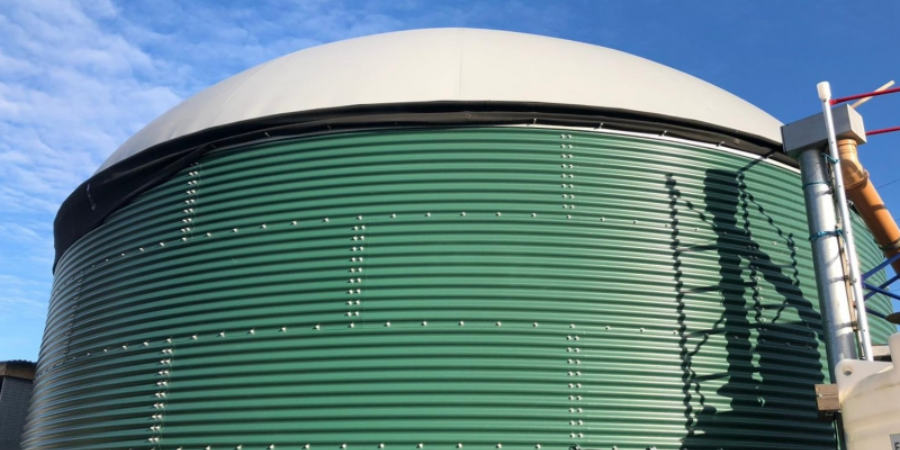
How Abattoirs can Benefit from the FARM250.

There is a lot of momentum around making the UK food system more sustainable. One area, which was spoken about at the Oxford Real Farming Conference (ORFC) back in January 2022, was how crucial small abattoirs are to sustainable farming. With more abattoirs being created, there will be more waste, such as bedding and non-consumable animal products. The FARM250 anaerobic digester system can offer many sustainable solutions which can help keep abattoir pollution to a minimum.
What is the Farm250 Anaerobic Digester System?
The FARM250 is a waste treatment and pollution control system that takes organic material, such as animal manure, food waste and agricultural residues, and converts it into end products like compost, fertiliser, and biogas for energy. The special joint design by J & J. Carter and Bioplex includes a Double Layer PVC Gas Holder membrane. Our systems are engineered to be sustainable and flexible, allowing them to withstand extreme weather conditions while taking up minimal space.
The FARM250 can offer an eco-friendly and sustainable solution that allows abattoirs to treat wastes such as lairage, paunch contents and DAF sludge. It also creates sufficient renewable energy for the waste treatment plant to run itself, while any remaining energy can be made available to the abattoir to become less dependent on grid energy.
So, how is this done? Waste materials can be pasteurised, enabling the operator to comply with Animal By-Products Regulations Cat 3 and then a fermentation process whereby microbes feed on organic matter, producing biogas.
FARM250 biogas is typically 70% methane and 30% carbon dioxide, with traces of nitrogen and hydrogen. Hydrogen Sulphide is usually less than 100ppm. The methane and carbon dioxide can be separated from the biogas by specialist equipment and stored. The separated methane can be used in most natural gas-fuelled equipment such as vehicles, generators, heating, and cooking.
The carbon dioxide is used in various ways throughout the British food supply chain, from keeping bread and salads fresh, in glasshouses to enhance plant growth, in breweries and for stunning animals in abattoirs. Currently, the UK is in a carbon dioxide crisis which is resulting in a shortage of produce in supermarkets, the quality of products made and price increases.
Being able to manufacture their own carbon dioxide enables abattoirs to reduce the cost of waste disposal and energy, as well as adding a boost to their bottom-line margin.
Benefits
- Significant reduction in waste disposal costs.
- Control of odour, pathogens, parasites, and vermin associated with waste handling and storage.
- Renewable energy generation, biomethane and carbon dioxide production.
- Fertiliser production. This leads to carbon capture when the growing plants use to take more carbon dioxide from the atmosphere than the premises emits.
Discover the FARM250 Anaerobic Digester System
Here at J & J Carter, we pride ourselves on the high-quality service we offer our clients, from designing and manufacturing to installing your bespoke biogas storage system.
For more information on how our FARM250 can help reduce an abattoir’s costs or if you want to know more about biogas storage systems, get in touch with our knowledgeable team today.
